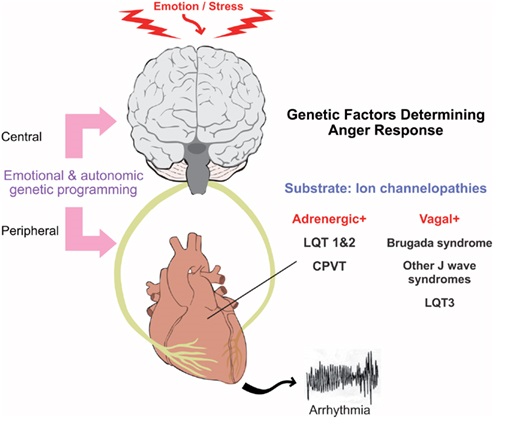Anger, a powerful emotion capable of inciting intense reactions, has long been recognized as a significant factor in human behavior. From everyday frustrations to deep grievances, the experience of anger can vary greatly in intensity and duration. While it's common knowledge that anger can affect mental well-being, emerging research suggests that its consequences may extend beyond the realm of emotions to impact physical health as well. In particular, recent studies have shed light on the link between angry outbursts and the risk of cardiovascular events, including massive heart attacks.
One groundbreaking study by [Institute] researchers delved into this complex relationship between anger and heart health. This study published in [Journal] analyzed data from [Number] participants over [Time Frame]. The findings revealed a compelling link between intense episodes of anger and the occurrence of massive heart attacks. According to the researchers, individuals who reported frequent outbursts of anger were significantly more likely to have a sudden and severe heart attack compared to those who reported lower levels of anger.
But how exactly does anger contribute to such dire consequences for heart health?
The answer lies in the physiological reactions triggered by intense emotional states. When a person experiences anger, the body enters a state of heightened arousal characterized by increased heart rate, increased blood pressure, and the release of stress hormones such as adrenaline and cortisol. While these responses are part of the body's natural fight-or-flight mechanism, prolonged or frequent activation can take a toll on cardiovascular health.
One of the key mechanisms by which anger can affect heart health is by promoting inflammation and oxidative stress in the cardiovascular system. Chronic inflammation and oxidative damage are known to contribute to the development and progression of atherosclerosis, the underlying condition responsible for many heart attacks. Thus, repeated episodes of anger can worsen these processes and increase the risk of plaque rupture and subsequent cardiac events.
In addition, anger can also disrupt the normal rhythm of the heart, a phenomenon known as cardiac arrhythmia. In individuals predisposed to arrhythmias, sudden outbursts of anger can trigger abnormal electrical activity in the heart, which can lead to dangerous cardiac arrhythmias such as ventricular fibrillation. In severe cases, these arrhythmias can culminate in a massive heart attack or sudden cardiac arrest with devastating consequences.
In addition to its direct physiological effects, anger may also indirectly affect heart health through its influence on health behaviors. For example, people prone to anger are more likely to engage in unhealthy behaviors such as smoking, excessive alcohol consumption, or overeating, all of which are major risk factors for heart disease. In addition, chronic anger and hostility are associated with poor sleep quality and disruption of circadian rhythms, further compromising cardiovascular health.
Despite a growing body of evidence linking anger to adverse cardiovascular outcomes,
Despite a growing body of evidence linking anger to adverse cardiovascular outcomes, addressing this issue remains a complex issue. Unlike traditional risk factors such as high cholesterol or hypertension, anger is inherently subjective and difficult to measure objectively. In addition, interventions to manage anger and reduce its impact on heart health often involve psychological and behavioral strategies that may vary among individuals.
However, raising awareness of the potential dangers of uncontrolled anger and promoting healthy ways of managing these emotions can play a vital role in protecting cardiovascular health. Techniques such as cognitive-behavioral therapy, stress management, and relaxation exercises have shown promise in helping individuals better cope with anger and its physiological consequences. In addition, fostering a supportive social environment and cultivating positive interpersonal relationships may serve as protective factors against the harmful effects of anger on heart health.
In conclusion, although anger may seem like a fleeting emotion, its effects on heart health can be profound and long-lasting. By recognizing the connection between anger and cardiovascular risk, individuals can take proactive steps to mitigate this threat and prioritize their overall well-being. There are many ways to lessen the impact of anger and promote a healthier heart for years to come, starting with adopting healthy coping strategies and maintaining positive relationships.










0 Comments